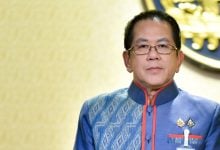Recruitment adventures: When job hunting in Thailand feels like a blind date

Navigating the waters of a job interview can often feel akin to treading the unpredictable path of a blind date. The entire process can be punctuated by uncertainty, ambiguity, and occasionally, a lack of respect and courtesy from the hiring party.
An interviewee’s experience can be marred by a lack of information about the interview process: from the number of people they would be meeting, and their roles within the organisation, to the duration and structure of the interview. An additional irritant is the absence of a point of contact to address any issues that might arise during the process.
The onus of ensuring a positive candidate experience rests with the hiring organisation. As such, the burden of change lies with the hiring companies and their HR representatives or managers. Their actions and behaviours have a profound impact on the recruitment process and can either enhance or undermine the image of the company.
This is particularly pertinent in instances where the recruitment process is outsourced to a third party. The candidates that are presented for interviews are often well-established executives who are not necessarily actively job-seeking.
These candidates have been convinced by the third-party recruiter of the potential benefits of a career move to your organisation. Therefore, it is essential to treat these candidates with the same courtesy and respect that would be extended to a valued customer.

An interview should be approached as an exchange of ideas rather than an interrogation. It is important to remember that the candidate may be exploring the opportunity out of curiosity, rather than a desperate need for a job. If the candidate is not convinced about the opportunity after the meeting, they may decide to abort the process. Similarly, the company may also decide not to proceed with the candidate, said Tom Sorensen an executive search veteran at NPAworldwide.
The company should strive to create a positive impression from the onset. This includes sharing the interview agenda, names and positions of the interviewers and the estimated duration of the interview. It also involves ensuring a clean and inviting meeting space and instructing the receptionist to extend a warm welcome to the candidate.
The candidate’s experience from arrival to departure plays a significant role in their decision to accept or reject a job offer. Therefore, it is crucial to put the best foot forward.
However, it appears that many companies in Thailand persist with the archaic practice of requiring candidates to fill out an application form at the onset of the interview process. This form, which contains information typically required post-hiring, is a relic from a time when there was a surplus of talent. It is a practice that needs to be discarded in the present-day context where the balance of power has shifted towards the candidates.
Follow more of The Thaiger’s latest stories on our new Facebook page HERE.
Latest Thailand News
Follow The Thaiger on Google News:


























